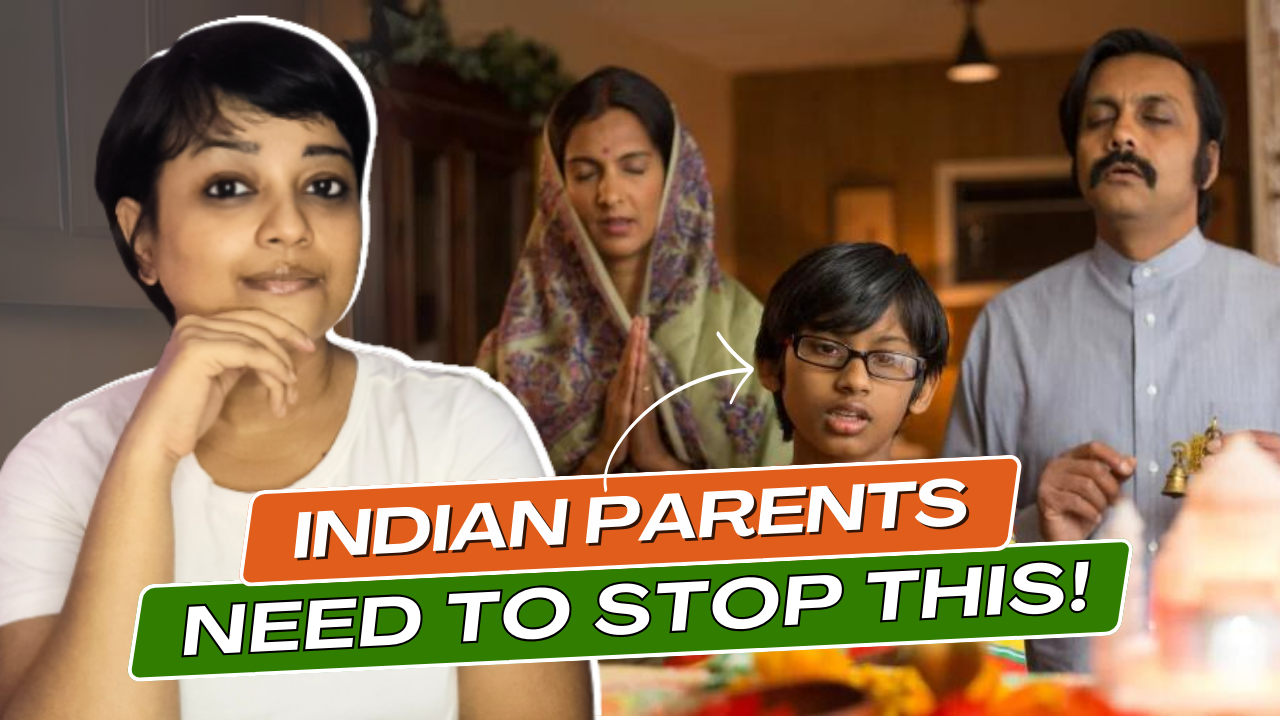Why are most Indian parents are so toxic, so messed up? Or are they not? What makes me think that they expect a lot from their children and instead of rather fixing their future aspirations with relationships with their children, they aim to impact it more.
I would say that most Indian parents are indeed messed up. Their mess up also impacts the children and their relationship with their children. It is really complex but let’s talk about it all.
No 1 concern for me is the expectation of most Indian parents from their children. They want their children to be obedient, super at studies, brilliant in social skills, and always attached to them constantly reassuring them of their old age safety and security. I tell you all these are psychologically absurd expectations. Parents must grow up to bring down their expectations because expectations hurt everyone and then stains relationships, which will guarantee that children become way too disobedient and uncaring to give any shit.
No 2 is when most Indian parents beat their children mercilessly, which is the primary reason why answers why Indian parents are so toxic. At a time when schools are abstaining from corporal punishment, parents at home make it all toxic. These parents allow no autonomy to their children and get harsh with them just anywhere. This aggressive attitude impacts children whether they realize it or not. Over time, this violence is internalized and as the children adult, they repeat the same with their children and many times, even parents. It is sick.
No 3 concern is the practice of denying children food as a form of discipline or punishment. This method is not only ineffective but also harmful. Food should never be used as a bargaining chip or a punishment. Withholding nourishment can lead to both physical and emotional harm. It can foster unhealthy relationships with food and create long-lasting psychological issues. This approach also undermines a child’s basic sense of security and trust in their parents, which is essential for healthy development.
No 4 issue is the involvement of most Indian parents in their own political or social dramas, which can inadvertently tarnish their children’s reputation. When parents become too engrossed in personal conflicts or social politics, it can spill over into their children’s lives, affecting how others perceive and treat them. This can lead to bullying, social isolation, or undue pressure on the children to conform to the expectations or image their parents have unintentionally cast upon them. It’s crucial for parents to shield their children from adult conflicts and maintain a healthy separation between their social/political issues and their parenting.
No 5 is the tendency of some Indian parents to overindulge their children with money, often as a substitute for emotional connection or time spent together. While providing for a child’s material needs is important, over-pampering with money can lead to a sense of entitlement, lack of appreciation for hard work, and an inability to deal with financial challenges in the future. It’s important for parents to balance material gifts with emotional support, teaching the value of money, and the importance of working towards personal goals.
In my opinion, parents in India resort to extremes, which answers why Indian parents are so toxic. They need to change their parenting style. This is in good interest for children as well as their psychological and physical wellbeing. If you agree with me, let me know in the comments, particular challenges you have experienced with your parents or in parenting.




